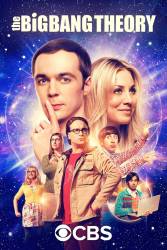
The Big Bang Theory (2007)
0 visible crew/equipment mistake in season 5 - chronological order
Starring: Kaley Cuoco, Johnny Galecki, Melissa Rauch, Simon Helberg, Jim Parsons, Kunal Nayyar
Genres: Comedy
I'm afraid there's nothing listed for this season. Add something here!
The Excelsior Acquisition - S3-E16
Plot hole: In Series 1, Episode 7, "The Dumpling Paradox, " Sheldon makes an oblique reference to his financial status: "Frankly, if I could afford the rent, I'd ask you [Leonard] to leave, " meaning he cannot pay the rent on his two bedroom apartment by himself - not that he doesn't want to, he can't. However, in "The Execlsior Acquisition, " we find that he does not even cash his pay cheques. He doesn't even deposit them into a bank account - he leaves them in a drawer in his desk. In Series 2 Episode 14 "The Financial Permeability", he lends Penny a large amount of money from a huge bankroll he just happens to have lying about - again, without cashing his pay cheques! He is obviously independently wealthy. Either he doesn't have enough money to afford the rent or he has enough to work without being paid while practically giving large amounts of cash away. Can't be both.
The Extract Obliteration - S6-E6
Stephen Hawking: Do you like brain teasers?
Sheldon Cooper: Oh, I love brain teasers.
Stephen Hawking: What do Sheldon Cooper and a black hole have in common? They both suck. Neener, neener.
The Holographic Excitation - S6-E5
Trivia: In this episode, Sheldon and Amy are trying to decide on couples' themed Halloween costumes. Sheldon is standing in front of the dry erase board. There are 2 columns written on the board. One named "Couples I Like" and the other "Couples You Like." Under the "Couples You Like" column, one of the couples is Blossom and Joey. Blossom is the name of the television character played by Mayim Bialik in the 90s and Joey was one of her brothers.
The Euclid Alternative - S2-E5
Question: Though it comes up in other episodes as well, this one is focused on Sheldon needing a ride everywhere he goes because he can't drive, not to mention his not being welcome on the bus. Of course, this story element would be nonexistent if there was a simple answer, but it does beg the question: Does Pasadena not have taxicabs?
Join the mailing list
Separate from membership, this is to get updates about mistakes in recent releases. Addresses are not passed on to any third party, and are used solely for direct communication from this site. You can unsubscribe at any time.
Check out the mistake & trivia books, on Kindle and in paperback.




Suggested correction: Not being able to afford doesn't necessarily mean he doesn't have the money, especially a man like Sheldon. He works with a budget and he sticks to it. In his budget he has a certain amount set aside for rent, anything more than that and he can't afford it alone.
Nonsense. If he was sticking to a "rigid budget" he wouldn't have even thought of lending a hopeless credit risk like Penny a single cent. Instead he throws a huge bankroll at her without even discussing a repayment plan.
Rubbish, I stick to a strict budget but still have the money to lend to close friends. Like Penny is to him.
He might have different budgets for different things. People could get a higher margin because they could be of more use to the scientific mind of Sheldon.